Of baseball, brothers, and heroes
A tale of shared courage "for life" between a baseball hero and a big brother
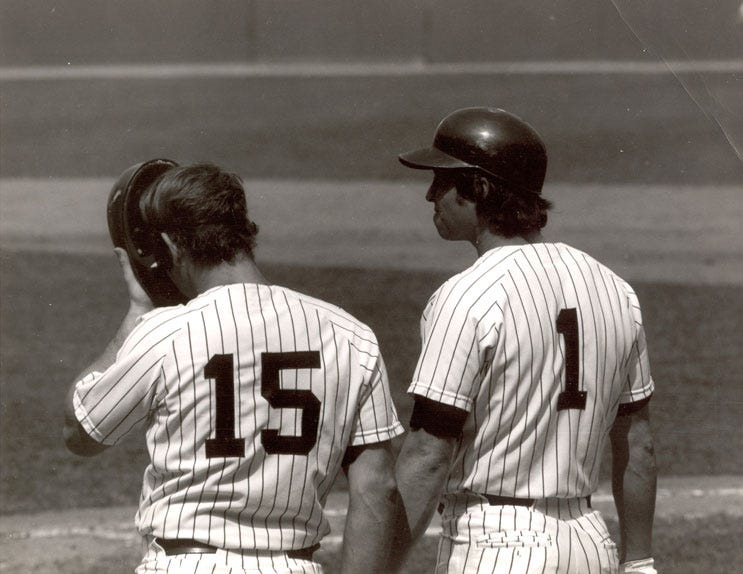
WATERLOO — It's baseball season. Folks are telling and retelling their favorite baseball stories.
Okay. I’ll bite.
I won't say this is my favorite baseball game or moment. It was born of tragedy. But it is the most courageous feat I have ever seen or ever will see on a ball diamond.
And as long as I live, it will be linked to a very special person in my life — my big brother Mike.
In his autobiography "Yankee for Life," Bobby Murcer of the New York Yankees said on one of the saddest days of his life, Aug. 6, 1979, he had the greatest night of his career.
"Number 15 for the record books. But history will remember my friend as Number One," Bobby said that morning in a eulogy for his friend, team captain Thurman Munson, killed in a plane crash a few days earlier at age 32.
Bobby had just returned to the Yankees in a trade with the Chicago Cubs after being gone almost five years. His reunion with his buddy was brief.
That evening, against the first-place Baltimore Orioles and before a national television audience, Bobby had the game of his life, in a performance that really transcended the game. ABC’s Keith Jackson and Howard Cosell made the call in the Major League Baseball video clip below.
With the Yankees down 2-0. Bobby hit a three-run homer off Baltimore starting pitcher Dennis Martinez for a 3-2 lead. The Orioles answered later with a two-run homer.
Baltimore took that 4-3 lead into the ninth inning as the Yankees came to bat and put two runners on base. The Orioles pitcher was reliever Tippy Martinez, a former Yankee who recorded his first big league win while with the Yankees at Minnesota in 1975 with Thurman catching. I was at that game.
Bobby came to bat against Tippy with two outs. With two strikes against him, Bobby lined a hit down the left field line, knocking in two runs and winning the game 5-4. He had driven all five Yankee runs. His teammates mobbed him and helped him off the field in tears.
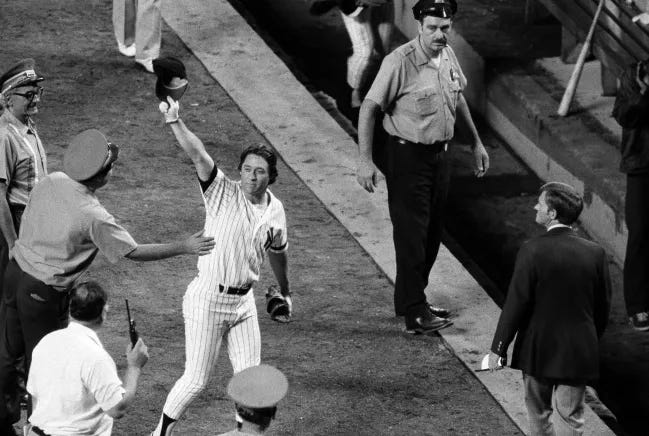
"Everything I did tonight was for him," Bobby told a United Press International writer in the locker room after the game.
He never used the bat again. He gave it to Diana Munson, Thurman's widow.
"I thought it belonged in the Munson family," he said in an oral history interview for a Yankee DVD.
Bobby Murcer played until early in the 1983 season when he took a job in the broadcast booth and made way for another Yankees star, Don Mattingly.
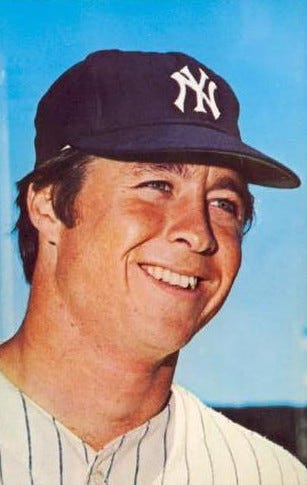
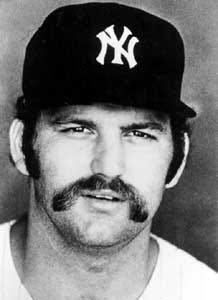
When Bobby Murcer wrote “Yankee for Life,” he was dying. Bobby passed away in 2008 at age 62 of brain cancer — which also claimed the life of my big brother Mike in 1996.
Mike taught me to hit a baseball as a little kid when he was on leave from the Air Force. Mike was a big Mickey Mantle and Yankees fan. So I was too.
The Yankees were not very good when I was a little kid. In 1966, they finished last for the first time in 54 years. Mickey Mantle was hobbled and near the end of his great career.
I took a lot of razzing at summer playground from all the kids who were fans of the Minnesota Twins. The Twins were very good at that time, unlike the Yankees. Still I remained true to the once-mighty Bronx Bombers. I found a Yankee cap amid all the Twins caps at the store, got a Powerized Mickey Mantle Louisville Slugger bat for my birthday in 1969 and took both to playground come what may. I hit 36 home runs in pickup games that summer, most of them with that bat. I kept daily stats. Mike taught me how to calculate batting average.
Mike settled in Louisiana after he got out of the Air Force and would send me baseball clippings out of the Baton Rouge Morning Advocate to add to a scrapbook of baseball heroes he had started in the late 1950s. I started adding to it in the late 1960s. One of the clippings Mike sent was when Mickey Mantle hit one of the last home runs of his career off Detroit’s 31-game winner Denny McLain in 1968 to finish third on the all-time home run list, fulfilling a personal goal.
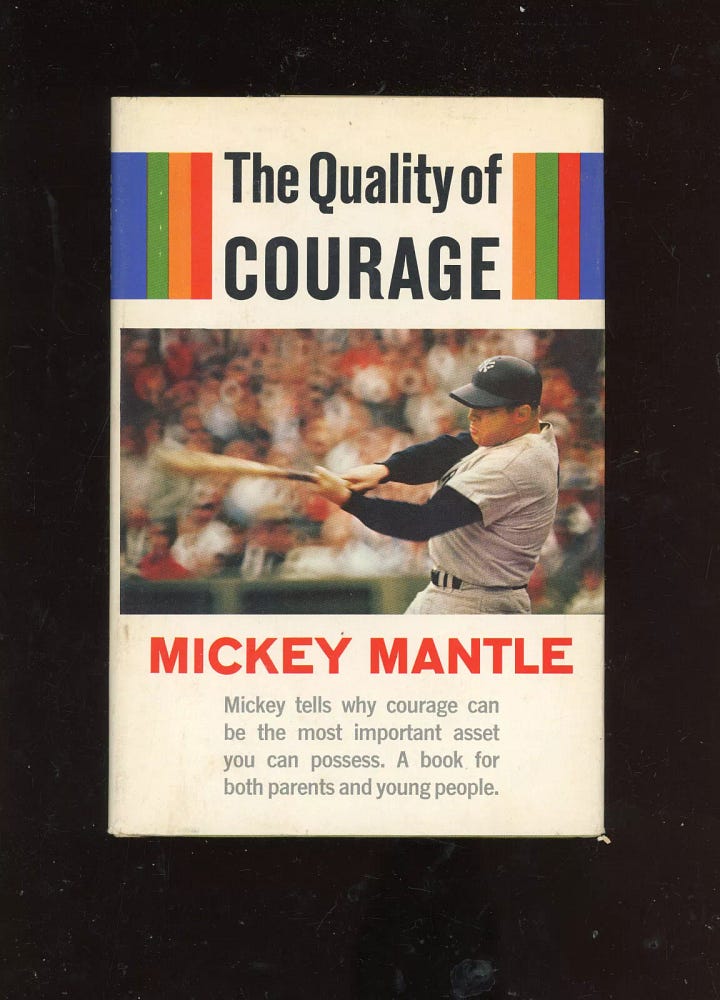
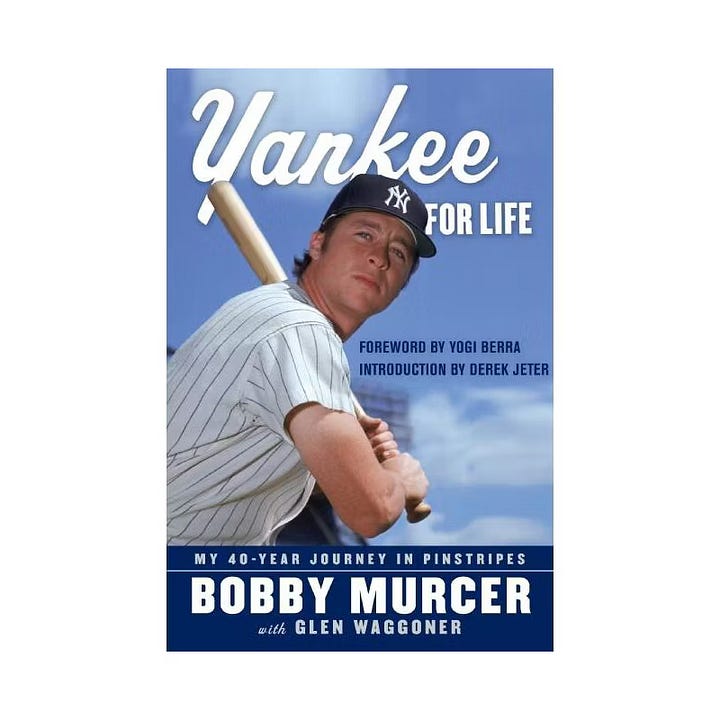
Mickey Mantle announced his retirement in March 1969 and I rooted for new Yankee heroes —- Bobby Murcer and Thurman Munson. Bobby was supposed to be the next Mickey Mantle. He wasn’t. But on Aug. 6, 1979 he showed that being Bobby Murcer, as an athlete and a man, was more than good enough.
For what he did that night for Thurman, and his courage in facing the same cancer that took my own brother’s life, he remains not only one of my all-time favorite athletes but a personal hero. He was a “Yankee for Life” in every sense of the phrase.
Mike had that same kind of courage. He fought his cancer every step of the way and did everything he could for himself as long as he could until the very end.
When my other older brother George and I went down to Louisiana a year before Mike’s passing, Mike insisted on driving his pickup truck to his cancer radiation treatments 20 miles down the road to the hospital in Hammond. Mike may have idolized Mickey Mantle, but he could be more like Mickey’s pal, the irascible Billy Martin, in temperament. In his own words, Mike could “get the red ass.” But under that, he was a sensitive guy with a tender heart.
He also refused to take the interstate, instead preferring a clay bottomed country back road, like so many he knew and supervised work on as a state highway inspector. We of course went with him. Mike drove, George rode shotgun, and I, being the runt of the litter, straddled the stick shift in the truck cab between them. So here we were, we few, we band of brothers, bouncing down a Louisiana back road in Mike’s truck. I had to brace myself to keep from hitting my head against the cab roof.
I’ll cherish those memories as long as I live. Nothing’s cooler than having a big brother. I had two.
A year later, Mike was in home hospice care. The end was near. A priest performed last rites. When we finished reciting the Rosary, I set my Yankee cap on top of Mike’s pillow in his elevated hospice bed and I left the room. It was a little too much to take.
Mike passed away a few days later. He was 52. He was laid to rest in a rural cemetery near a field where he used to bird hunt. His stone bears an etching of his pickup riding off into the sunset.
He was survived by three grown children and a grandchild — with many more grandkids, great grandkids and step great grandkids to come — one of whom now wears present-day Yankee star Aaron Judge’s No. 99 in youth baseball. The Kinney family tree is now deep and wide in the red clay earth in Louisiana.
So, when I heard, a decade after Mike’s passing, that Bobby Murcer had brain cancer, I knew what he was in for, from my experiences with Mike. My thoughts and my heart went back to my big brother and out to Bobby and his family. His love for life and family shows on the pages of his autobiography. He also successfully lobbied for legislation in his native Oklahoma restricting smokeless tobacco sales to minors and raised millions for cancer research.
Ernest Hemingway defined courage as “grace under pressure.” In the early 1960s, Mickey Mantle and baseball writer Robert W. Creamer co-authored a book called “The Quality of Courage.” It includes Mickey’s reflections on admired contemporaries like Jackie Robinson, Roger Maris, Roy Campanella and Ted Williams.
If I were to write such a book, Bobby Murcer would have a chapter in it —- not far from the one on my big brother Mike.
Each, in their own way, had the quality of courage, in abundance — and in Mike’s case, he also has my everlasting love.
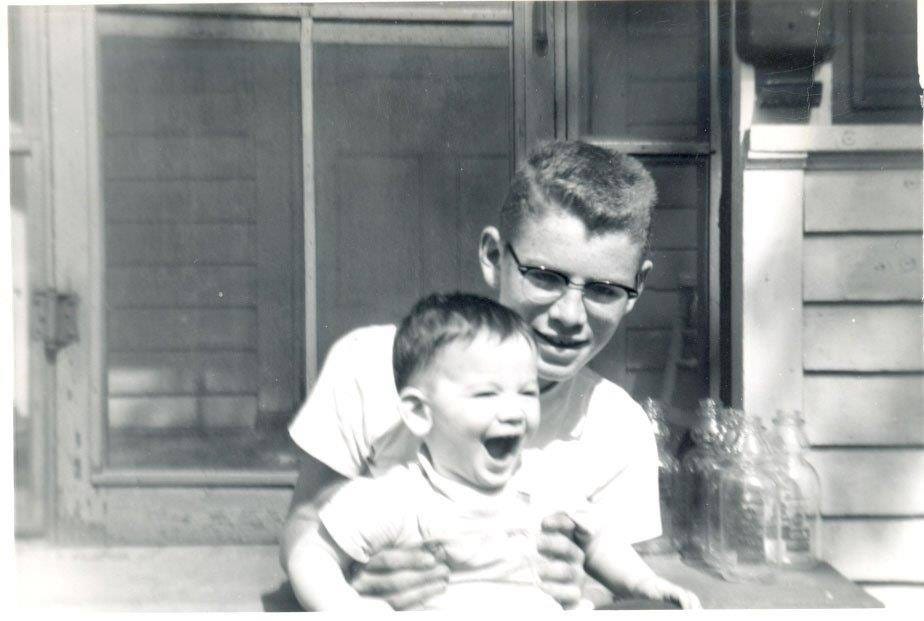
Pat Kinney is a freelance writer and former longtime news staffer with the Waterloo-Cedar Falls Courier and, prior to that, several years at the Ames Tribune. He is currently an oral historian with the Grout Museum District in Waterloo. His “View from the Cedar Valley” column is part of “Iowa Writers Collaborative,” a collection of news and opinion writers from around the state who previously and currently work with a host of Iowa newspapers, news organizations and other publications. They are listed below. Clink on the links to check them out, subscribe for free - and, if you believe in the value of quality journalism, support this column and/or any of theirs with a paid subscription.
The Iowa Writers’ Collaborative




Pat, thanks for the story. So sorry about your brother‘s fate. Way too young. I’m sure he was a good man and left his legacy.
What a wonderful story. Thanks, Pat.